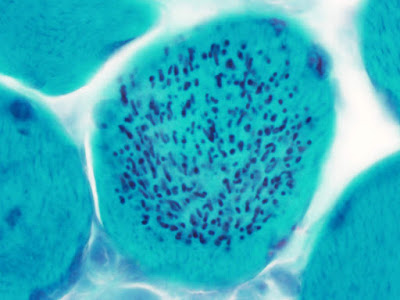 |
| Matija Snuderl, MD |
Dr. Matija Snuderl, neuropathologist and molecular pathologist at
New York University Langone Health, was featured in
a recent article appearing in Nature (March 26, 2020, Vol 579, p S14-S16). The article, which addresses the use of artificial intelligence (AI) in cancer diagnostics, opens with Dr. Snuderl experiencing a moment that many of us neuropathologists have had wherein we hesitate before signing out a case because of a feeling that something might be just a bit different about a particular specimen. That feeling prompts us to do something else (run more ancillary testing, get a consult, sleep on it and take another look the next day, etc.). In Dr. Snuderl's case, he was looking at a case which was thought to be a recurrence of a medulloblastoma in a young girl. Some of the histologic features didn't quite fit with medulloblastoma. "So, to help him make up his mind, Snuderl turned to a computer. He arranged for the girl to have a full-genome methylation analysis," writes Neil Savage, author of the article. Snuderl relays the result of this investigation: "The tumor came back as a glioblastoma... If I had finalized the case just on pathology, I would have been terribly wrong." The AI system Snuderl used involved a database of thousands of tumor methylation profiles at the German Cancer Research Center. NYU Langone's
Perlmutter Cancer Center is applying AI to the classification of tumors of all sorts, not only using pathologic samples, but also MR imaging, mammograms, and other means of diagnosis.
Thanks to Dr Snuderl for representing the important role neuropathologists play in cancer diagnostics in the age of molecular medicine and article intelligence. Thanks also to
Dr. Michael Lawlor, of the Medical College of Wisconsin, for alerting me to this article!








